Mark Anthony Neal's Blog, page 564
November 8, 2016
Historian Earl Lewis: How STEM Was Born + Why Scientists Need Humanists
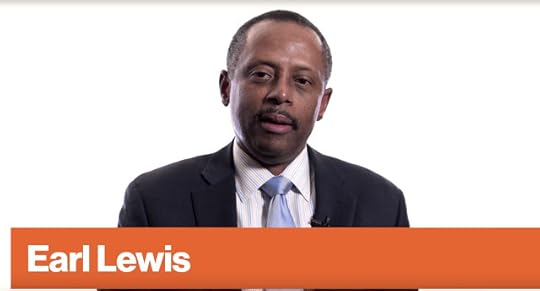 'Through an incredible anecdote, Historian Earl Lewis demonstrates why STEM can't do it alone. Scientists and humanists needs each other, and institutions have a responsibility to continue to fund and nurture the humanities. Lewis's latest book is Our Compelling Interests: The Value of Diversity for Democracy and a Prosperous Society.'
'Through an incredible anecdote, Historian Earl Lewis demonstrates why STEM can't do it alone. Scientists and humanists needs each other, and institutions have a responsibility to continue to fund and nurture the humanities. Lewis's latest book is Our Compelling Interests: The Value of Diversity for Democracy and a Prosperous Society.'
Published on November 08, 2016 02:52
"Black America Again" -- Common feat. Stevie Wonder -- A Short Film Directed by Bradford Young
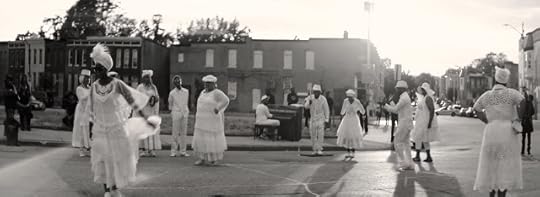 "Black America Again" -- a short film by award winning cinematographer Bradford Young (Pariah), executive produced by Ava Duvernay featuring the music of Common with Stevie Wonder + Jabari Exum and choreography from Rashida Bumbray. The original version of "Black America Again" is the title track of Common's new album.
"Black America Again" -- a short film by award winning cinematographer Bradford Young (Pariah), executive produced by Ava Duvernay featuring the music of Common with Stevie Wonder + Jabari Exum and choreography from Rashida Bumbray. The original version of "Black America Again" is the title track of Common's new album.
Published on November 08, 2016 02:27
November 7, 2016
The True Story of NASA's Black Women Mathematicians -- Author Margot Lee Shetterly Visits Duke University
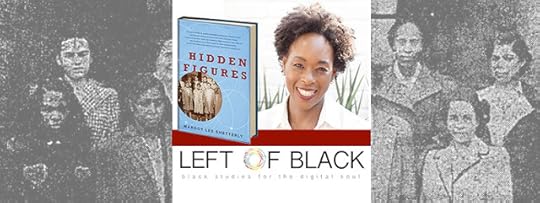 Margot Lee Shetterly author of the recently released book
Hidden Figures: The American Dream and the Untold Story of the Black Women Mathematicians Who Helped Win the Space Race
(Fall 2016, HarperCollins) will be interviewed by Mark Anthony Neal for a special live audience taping of Left of Black on Wednesday November 9, 2016 at 3:30PM in the Ahmadieh Family Conference Hall, (RM 240) at the
John Hope Franklin Center for Interdisciplinary and International Studies
(2204 Erwin Road).
Margot Lee Shetterly author of the recently released book
Hidden Figures: The American Dream and the Untold Story of the Black Women Mathematicians Who Helped Win the Space Race
(Fall 2016, HarperCollins) will be interviewed by Mark Anthony Neal for a special live audience taping of Left of Black on Wednesday November 9, 2016 at 3:30PM in the Ahmadieh Family Conference Hall, (RM 240) at the
John Hope Franklin Center for Interdisciplinary and International Studies
(2204 Erwin Road). An instant NYT bestseller, Hidden Figures is the true story of the black women mathematicians at NASA who helped fuel some of America's greatest achievements in space that occurred during WWII and the Civil Rights era. A reception will follow the interview in the 1st Floor Gallery of the Franklin Center. I encourage you to bring students. Seating is limited. At 7PM that evening, Ms. Shetterly will give a talk in Reynolds Industries Theater in the Bryan Center. This event is free and open to the Duke and Durham communities. A book signing will follow.
The events are hosted by the Dean of the Trinity College of Arts + Sciences at Duke University.
+++
Left of Black is a weekly Webcast hosted by Mark Anthony Neal and produced in collaboration with the John Hope Franklin Center at Duke University and in conjunction with the Center for Arts + Digital Culture + Entrepreneurship (CADCE) and the Duke Council on Race + Ethnicity
Published on November 07, 2016 09:42
First Take: Hank Willis Thomas Reveals What Makes A Great Photographer
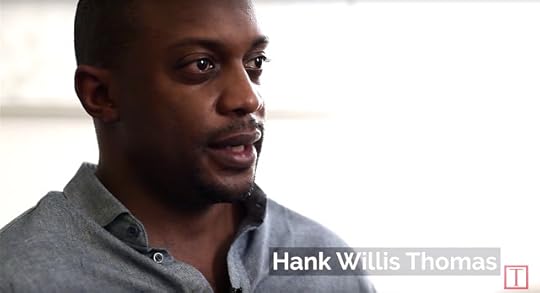 'Conceptual artist, photographer, and arts educator, Hank Willis Thomas, talks about his primary interests in race, advertising and popular culture, what makes a great photographer & more.' -- +TIME
'Conceptual artist, photographer, and arts educator, Hank Willis Thomas, talks about his primary interests in race, advertising and popular culture, what makes a great photographer & more.' -- +TIME
Published on November 07, 2016 02:58
#ProfessionalBlackGirl - Episode 9: Evelyn Alvarez
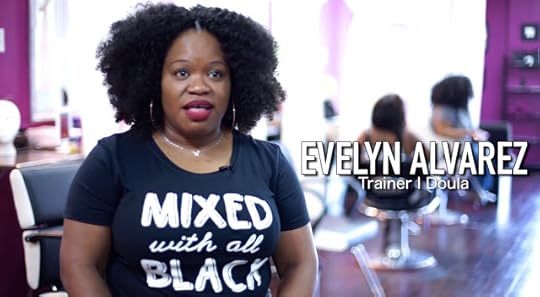 'Evelyn Alvarez. Doula. Trainer. Founder of Prom King NYC. Mommy. Mami. And #ProfessionalBlackGirl.' -- +Yaba Blay
'Evelyn Alvarez. Doula. Trainer. Founder of Prom King NYC. Mommy. Mami. And #ProfessionalBlackGirl.' -- +Yaba Blay
Published on November 07, 2016 02:45
The Lush Life Of Billy Strayhorn
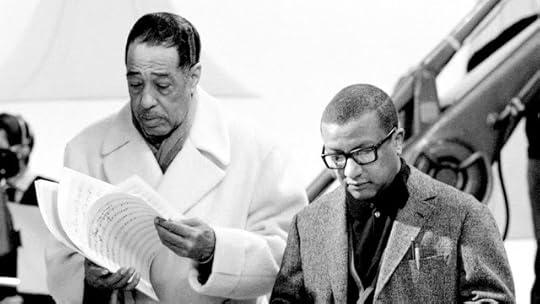 'The fruitful collaboration between
Billy Strayhorn
and
Duke Ellington
is widely known to have brought us such classics as "Take The 'A' Train," "Chelsea Bridge" and "Isfahan." While composing some of the most harmonically rich jazz of its time — often in Ellington's shadow — Strayhorn was an outlier in that he led an openly gay life as a black man in the 1940s, an era rife with homophobia and racism. In this episode of Jazz Night In America, hear interviews with Strayhorn's family members and biographer, along with rare archival tape of Strayhorn himself. You'll also hear Strayhorn's music performed by the Jazz at Lincoln Center Orchestra, including pianist Johnny O'Neal's rendition of "Lush Life."' -- NPR Music
'The fruitful collaboration between
Billy Strayhorn
and
Duke Ellington
is widely known to have brought us such classics as "Take The 'A' Train," "Chelsea Bridge" and "Isfahan." While composing some of the most harmonically rich jazz of its time — often in Ellington's shadow — Strayhorn was an outlier in that he led an openly gay life as a black man in the 1940s, an era rife with homophobia and racism. In this episode of Jazz Night In America, hear interviews with Strayhorn's family members and biographer, along with rare archival tape of Strayhorn himself. You'll also hear Strayhorn's music performed by the Jazz at Lincoln Center Orchestra, including pianist Johnny O'Neal's rendition of "Lush Life."' -- NPR Music
Published on November 07, 2016 02:32
Gentrification in the Bronx -- Surging Home Prices Mixed Blessing in Mott Haven
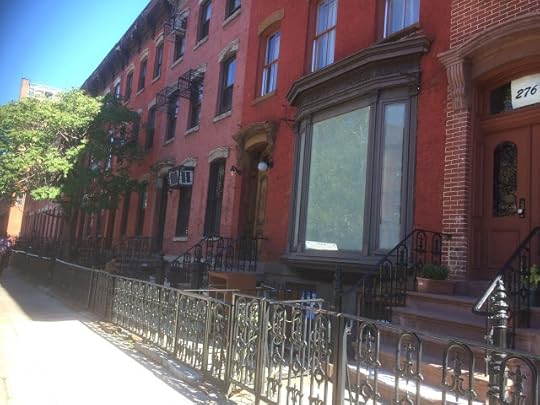
'WNYC is taking a close look at New York City’s affordability crisis, one neighborhood at a time. We’re starting in Mott Haven in the South Bronx. Mott Haven remains one of the city's poorest neighborhoods. But the promise of new development, proximity to Manhattan, and soaring prices in Brooklyn and Queens are causing the housing market in this neighborhood in the South Bronx to heat up. Buyers who’ve been priced out of other boroughs are snapping up historic brownstones and row houses in the neighborhood, and speculators are swarming current owners with offers. ' --WNYC
Published on November 07, 2016 02:20
November 6, 2016
Your Vote Is Not Your Voice by Lawrence Ware
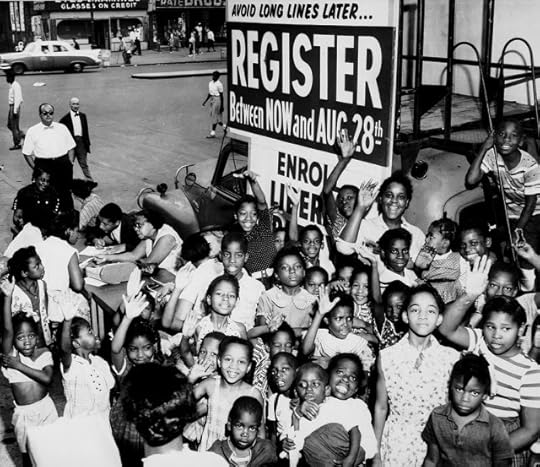 Your Vote Is Not Your Voiceby Lawrence Ware | @Law_Ware | NewBlackMan(in Exile)
Your Vote Is Not Your Voiceby Lawrence Ware | @Law_Ware | NewBlackMan(in Exile)In 1956, W.E.B. Du Bois was so grieved by his political options that he decided not to vote. He said, “I shall not go to the polls. I have not registered. I believe that democracy has so far disappeared in the United States that no ‘two evils’ exist. There is but one evil party with two names, and it will be elected despite all I can do or say.”
In light of the fact that many progressives find themselves in a precarious position because they are weighing a choice between Hillary “super predator” Clinton and Donald “grab them by the pu**y” Trump, this needs to be said: Voting is important, but in a democracy, our vote is not our voice.
For years, black folks have been told just that: our vote is our voice. The reason such an emphasis is placed on voting is understandable. It was not until 1869 that the 15th Amendment gave black men the right to vote. This excluded black women, and the amendment was relatively toothless because states then instituted grandfather clauses and literacy tests that attempted to delimit black participation in the political process.
It was not until 1965, after years of demonstrations and bloodshed, that President Lyndon B. Johnson signed the Voting Rights Act into law, “permanently barring barriers to political participation by racial and ethnic minorities, prohibiting any election practice that denies the right to vote on account of race, and requiring jurisdictions with a history of discrimination in voting to get federal approval for changes in their election laws before they can take effect.” Given this history, the deep love of democracy in the black community makes sense. The right to vote was not something we were given—we had to earn it.
Yet, with this history in mind, I still reject the notion that my vote is my only voice in a democracy.
Before the majority of black folks were allowed to vote, we influenced democracy in America. Through sit-ins, hunger strikes and other forms of civil disobedience, we were able to influence policy and force those in power to address our concerns.
When President Barack Obama recently praised Black Lives Matter for its ability to highlight issues but criticized the movement by saying, “They yell too much” and “Yelling is not what will get the job done,” he was appealing to the notion that in a democracy, one must raise awareness of an issue and then move toward finding solutions within the political system.
I disagree. The point of an activist is to raise awareness. It is to be a gadfly in the Socratic tradition. It is the height of white supremacy for one to tell an oppressed people that they must not only survive injustice but must also fix an evil system that they did not design. That is what those who say, “Your vote is your voice” imply—whether they mean to communicate that or not.
To vote is to participate in a political system—not to change or challenge it. In an election, it is to choose between two candidates who may or may not live up to their campaign promises, and who almost certainly have engaged in some form of ethically questionable behavior to gain access to political power.
My vote is not my voice. My voice is my voice. If I march, if I shout, if I engage in civil disobedience, if I write and, yes, if I choose to vote, I am engaging in the democratic process. On Election Day I have a choice between a racist nationalist and a warmongering neoliberal. If I choose to vote for one, that is participating in this democracy. If I choose to vote for neither and engage in protests, I am still an engaged citizen of this democracy.
Black politicians may tell us to vote because they genuinely want to see black and brown faces engaged in this democracy—or perhaps they do it because they know that we will most likely vote for them. If it is the former, I applaud them. If it is the latter, it is nothing more than the self-serving politicking that had Dixiecrats voting against the passage of the Voting Rights Act in 1965 or that Republicans engage in when they redistrict and pass voter-ID laws that delimit poor, black and brown people’s participation in the democratic process.
I agree that voting is important—if not in national elections, then certainly locally. While much attention is paid to who will be the president of the United States, there should be as much attention paid to who will be one’s state congressional representative, school board representative and city council person. Voting matters—but I do not think that voting is our only, or even our loudest, voice in a democracy.
Let us never forget that this political system is not for us. It was designed to marginalize anyone who was not a white landowning man. If we have gained any political power, it was not while working within this system but by changing the system. Things may be better, but “better” isn’t the goal.
Vote if you want, but know that the work is not done. Once this election season is over, we must hold those we put in office accountable. That is when your voice matters most.
A version of this article originally appeared in The Root.
+++
Lawrence Ware is an Oklahoma State University Division of Institutional Diversity fellow. He teaches in OSU’s philosophy department and is the diversity coordinator for its Ethics Center. A frequent contributor to Counterpunch and Dissent magazine, he is also a contributing editor of NewBlackMan (in Exile) and the Democratic Left. He has been a commentator on race and politics for HuffPost Live, NPR’s Talk of the Nation and PRI’s Flashpoint. Follow him on Twitter.
Published on November 06, 2016 11:24
November 4, 2016
Dakota Access: Women Leading Standing Rock Protests Tell of Violent Arrests and Police Abuse
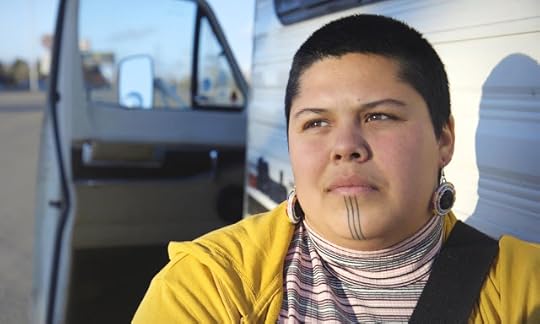 'The Native American women leading the Standing Rock protests against the Dakota Access oil pipeline say they have faced police abuse and mistreatment in jail.' -- +The Guardian
'The Native American women leading the Standing Rock protests against the Dakota Access oil pipeline say they have faced police abuse and mistreatment in jail.' -- +The Guardian
Published on November 04, 2016 11:35
Dakota Access: Women Leading Standing Rock Protes Tell of Violent Arrests and Police Abuse
 'The Native American women leading the Standing Rock protests against the Dakota Access oil pipeline say they have faced police abuse and mistreatment in jail.' -- +The Guardian
'The Native American women leading the Standing Rock protests against the Dakota Access oil pipeline say they have faced police abuse and mistreatment in jail.' -- +The Guardian
Published on November 04, 2016 11:35
Mark Anthony Neal's Blog
- Mark Anthony Neal's profile
- 30 followers
Mark Anthony Neal isn't a Goodreads Author
(yet),
but they
do have a blog,
so here are some recent posts imported from
their feed.



